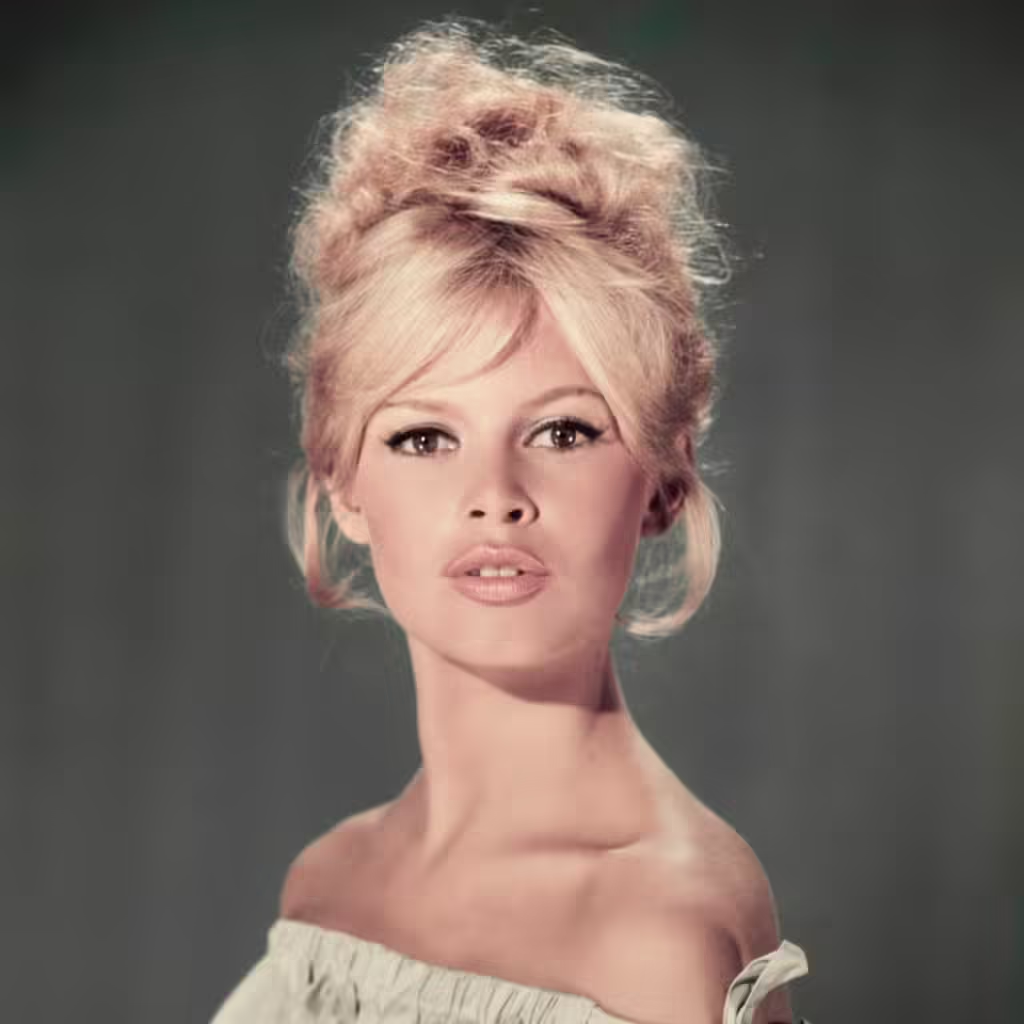
Table of Contents
Who Is Brigitte Bardot?
Brigitte Bardot is a renowned French model and actress whose impact on the entertainment industry has been profound and enduring. Rising to prominence in the 1950s, she graced the cover of Elle magazine as a teenager before her breakthrough role in the 1956 film And God Created Woman, which catapulted her to international fame. Over her illustrious career, Bardot starred in numerous films, including notable titles such as Contempt and Viva Maria!, before retiring from acting in the 1970s to dedicate herself to animal activism.
Early Life and Film Career
Brigitte Anne-Marie Bardot was born on September 28, 1934, in Paris, France. During her formative years, she studied ballet at the National Superior Conservatory of Paris for Music and Dance, showcasing her artistic talents early on. At the age of 15, she appeared on the cover of Elle, which marked the beginning of her ascent in the modeling and acting realms. Bardot’s career took a significant turn when she was discovered by screenwriter and future filmmaker Roger Vadim, whom she married in 1952. That same year, she made her film debut in Le Trou Normand. Subsequent roles included a romantic leading lady in La Lumière d’en Face (1954) and a handmaiden in Helen of Troy (1955).
International Sex Symbol
Bardot’s portrayal of a sexually liberated young woman in Vadim’s directorial debut, And God Created Woman (1956), solidified her status as an international sex symbol. The film, set in the picturesque southern French town of St. Tropez, was notable for its bold nudity and sensual themes, resonating with audiences and establishing Bardot as one of Europe’s leading actresses. Her off-screen persona, captured by paparazzi, exuded a natural and carefree sensuality, embodying the spirit of joie de vivre.
Following her divorce from Vadim in 1957, Bardot maintained a professional relationship with him, appearing in his 1958 film The Night Heaven Fell. Her filmography continued to grow with notable projects such as The Parisienne (1958), La Femme et le Pantin (1959), and Come Dance With Me (1959). However, Bardot faced personal turmoil, culminating in a suicide attempt on her 26th birthday during the production of La Verité. In later years, she reflected on the nightmarish pressures of celebrity culture and the relentless demand to maintain a particular image.
In her personal life, Bardot married actor Jacques Charrier in the late 1950s, with whom she had her only child, before their divorce in 1962. She then married German millionaire playboy Gunter Sachs in 1966, but their union lasted only three years. Bardot’s final marriage was to extreme right-wing political aide Bernard d’Ormale in 1992, marking a complex and multifaceted personal journey alongside her cinematic legacy.
Recording Career
In the 1960s, Brigitte Bardot expanded her artistic repertoire by pursuing a career as a musical artist. She released several albums, including Brigitte Bardot Sings (1960) and Special Bardot (1968). Additionally, she collaborated with renowned French vocalist, songwriter, and lounge artist Serge Gainsbourg, producing a series of memorable hits.
Bardot’s cinematic journey continued with notable films, such as the critically acclaimed Contempt (1963), directed by Jean-Luc Godard, and the visually stunning Viva Maria! (1965), where she shared the screen with fellow French icon Jeanne Moreau. She also starred in the romantic comedy Les Femmes (1969), showcasing her talent for both drama and humor. In the comedy Dear Brigitte (1965), she played herself, charmingly engaging with the young son of a professor, portrayed by Jimmy Stewart, who idolizes her.
Her remarkable beauty was immortalized through the famous French sculpture Marianne, unveiled in 1970 and modeled after Bardot. After an illustrious career, she retired in 1973 and settled in St. Tropez.
Animal Activism and Controversies
Brigitte Bardot transitioned from her illustrious film career to her passion for animal welfare, establishing the Foundation for the Protection of Distressed Animals in the mid-1970s. By the mid-1980s, she founded the Brigitte Bardot Foundation for the Welfare and Protection of Animals. Her advocacy has significantly influenced animal rights legislation, leading to the Council of Europe prohibiting the importation of seal fur and prompting the French government to ban ivory imports.
Despite her enduring status as a global beauty icon, celebrated by numerous art and fashion institutions, Bardot has faced considerable controversy in recent years. She has been criticized for making discriminatory remarks about Muslims, which have resulted in multiple fines for inciting racial hatred.
In January 2018, Bardot voiced her support for an open letter penned by Catherine Deneuve and 100 other prominent French women, which critiqued the #MeToo movement. In an interview with Paris Match, she echoed their sentiments, suggesting that many actresses who claim harassment had previously engaged in provocative behavior with producers in pursuit of roles. Bardot characterized their actions as hypocritical, asserting that she herself had never experienced sexual harassment and found compliments about her beauty or figure to be charming.
